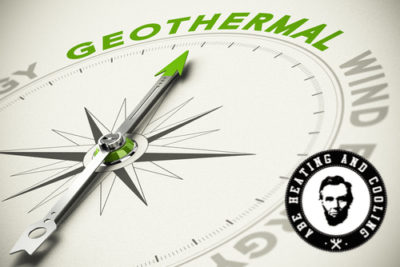“Abe's Heating and cooling were professional and on time. they helped me with two time sensitive projects and did excellent work. I know who I'll be calling if I should ever need an HVAC technician.”
Blog
 Sometimes the land of opportunity can be found right beneath your feet, and that is the case with geothermal energy.
Sometimes the land of opportunity can be found right beneath your feet, and that is the case with geothermal energy.
Only a small percentage of the heat pumps installed in the United States each year are geothermal heat pumps, which is incredible because they cost the same as traditional heat pumps but are far more efficient. Geothermal heating and cooling remains an underutilized technology, and that is a shame since it would be a wonderful option for millions of homeowners.
Perhaps you aren’t familiar with geothermal energy—what it is and how it works. If that is the case, what you don’t know may be causing you to miss out on something special.
In a geothermal energy system, a long loop of pipe is buried underneath the adjacent lawn to a depth of several feet, where temperatures are known to be steady and consistent (between 50 and 60 degrees all year round).
A heat pump installed inside the home continuously circulates a liquid through the loop, and if the liquid is hotter than 50-60 degrees it will lose heat as it runs under the ground. On the other hand, if the liquid is cooler than 50-60 degrees it will absorb heat from the ground as it passes through the pipes.
Either way, the cycle will continue as long as the heat pump is running—and that is how a geothermal energy system heats a home during the winter or cools it during the summer. The liquid that circulates through the system is the medium by which heat is absorbed from the ground and transferred into the home (in winter), or vice versa (in summer).
A geothermal heat pump is no different than a conventional heat pump in the essentials of its operation. The only difference is that it exploits differentials between above-ground and below-ground temperatures to achieve its heating and cooling effects, instead of extracting heat from the air and pumping it indoors or outdoors. Less energy input is required to complete this process, and that is what makes geothermal energy systems so efficient.
The benefits of geothermal energy include: